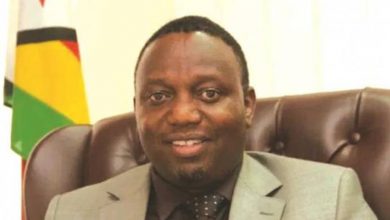42 laws still need to be aligned to the constitution

The government is yet to complete the alignment of laws to the constitution with 42 statutes still outstanding – an indication that the redrafting process is delayed.
More than 400 laws had to be aligned to the new constitution when it was enacted in 2013, as some were out of sync with some of the revised visions of the supreme law while 63 needed to be either repealed extensively amended or redrafted
Last year in March 2020, Permanent Secretary in the Ministry of Justice, Legal and Parliamentary Affairs, Virginia Mabhiza said there were 50 outstanding laws to be tabled before parliament within the next three months.
She said completion was slated for June that year, as the task force responsible was using a real-time bill tracker to expeditiously gazette new bills.
However, a year later, the alignment process is still incomplete, as 42 statutes are still outstanding, meaning only eight laws were redrafted during that period.
Delivering his State of the Nation Address and the Opening of the Fourth Session of the Ninth Parliament of Zimbabwe, Thursday, President Emmerson Mnangagwa acknowledged that some bills could not be looked at in time and had to be carried over to the current parliamentary session.
“Allow me now to shift focus to the legislative Agenda for the Fourth Session of the Ninth Parliament. I am aware that some Bills could not be dispensed with and were carried over from the Third Session. Of the existing statutes which are required to be aligned to the Constitution, it is pleasing that only 42 statutes remain to be enacted under the alignment process. These must be completed during this session,” he said.
The president said 13 bills are still with the respective line Ministries, of these, the Principles of two Bills have been approved by Cabinet, while 11 are still with Ministries.
“The Second Republic will continue to maintain its responsive and proactive stance to the emerging needs of our society by ensuring that the law is a tool for development,” Mnangagwa said.
He added that the ratification of agreements is equally important, and noted that his government had submitted the International Convention on the Elimination of Racial Discrimination State Party Report to the UN Treaty Body and was on schedule to submit the third Cycle Universal Periodic Report to the UN Human Rights Council.
“The Second Republic is also committed to ratifying all outstanding Bilateral Investment Promotion and Protection Agreements. Furthermore, Parliament is also expected to ratify the Marrakesh Agreement establishing the World Trade Organisation,” said the president.
In the health sector, President Mnangagwa said this fourth parliament session was expected to expedite consideration of the Medical Services Amendment Bill; the Medical Aid Societies Bill; and the Health Professions Amendment Bill.
“These should result in a consolidated legislative strategy to achieve Universal Health Coverage, enhanced access and affordable health services,” he said.
“Parliament will equally consider the Amendment of the State Universities Statutes Bill which seeks to amend the Acts governing the thirteen State Universities, to align with the Constitution and enhance conformity with the Heritage Based Education 5.0 policy. The Broadcasting Services Amendment Bill will see further liberalisation of the broadcasting sector.”
In the financial services sector, the president highlighted that the Insurance and Pensions Commission (IPEC) Bill is set to empower IPEC to prescribe a minimum level of assets and liabilities.
“It will also provide for the establishment of the Protection Fund for Policy holders and Pensions and Provident Fund members. On the other hand, the Securities and Exchange Act should be amended to widen the definition of Securities to include Virtual Asset Service Providers,” Mnangagwa noted.
“This will enable the Securities and Exchange Commission to regulate and supervise Virtual Assets Service Providers on a risk-based approach. This will be complemented by amendments to the Money Laundering and Proceeds of Crime Act. The envisioned Act seeks to provide for the identification and assessment of money laundering and terrorist financing risks that may arise in relation to virtual assets.”
The IPEC Bill will further make sure that appropriate sanctions are applicable to errant Virtual Assets Service Providers, their directors and senior managers.
“The Deposit Protection Corporation Act is also being amended to align the legislation to international best practice,” he said.





